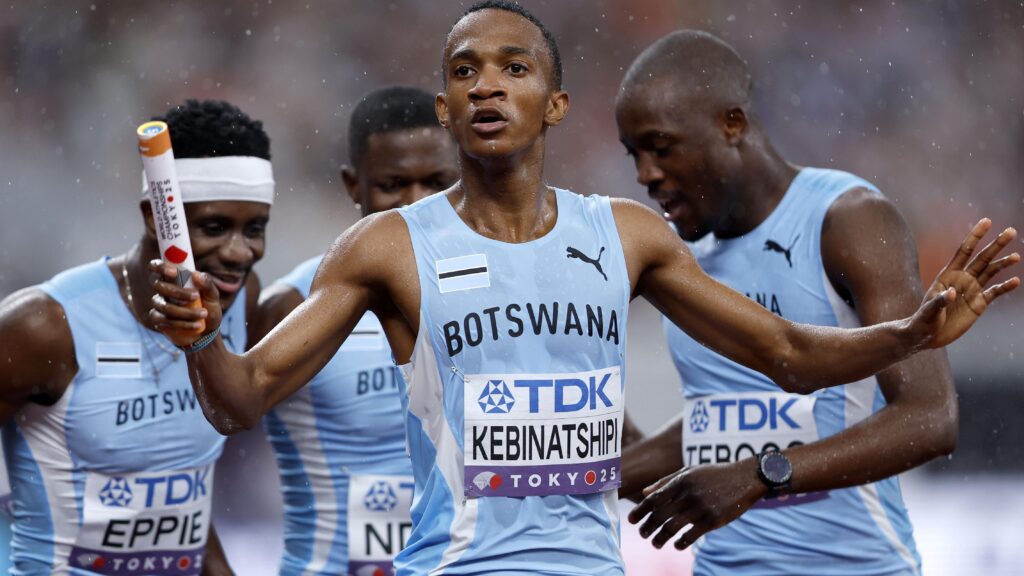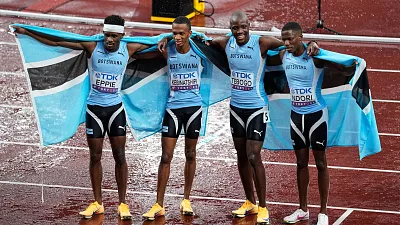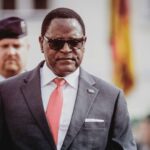Botswana has made history on the global athletics stage and at home, as President Duma Boko declared Monday, September 29, a public holiday in celebration of the nation’s stunning victory in the men’s 4×400 metres relay at the World Athletics Championships in Tokyo. The win marked the first time an African country has ever clinched gold in the prestigious event, a feat that has ignited pride across the continent and cemented Botswana’s place in the annals of sporting history.
In an online address delivered from New York, where he was attending the United Nations General Assembly, President Boko hailed the relay team’s triumph as a “historic African win.” He praised the athletes for their determination, teamwork, and resilience on the international stage, describing the moment as “electric” and symbolic of Botswana’s rising stature in global athletics. He went further to liken the athletes to the country’s most treasured natural resource, declaring: “Botswana’s natural diamonds are not just in the ground, they are our World Champion athletes.”
The victorious quartet Lee Bhekempilo Eppie, Letsile Tebogo, Bayapo Ndori, and Busang Collen Kebinatshipi delivered a performance that shocked the athletics world. In a rain-soaked Tokyo stadium, they edged out the United States, a team that had dominated the event for a decade with 10 consecutive world titles. South Africa secured third place, making it an all-African podium that highlighted the continent’s growing influence in track and field.
Botswana’s success did not end with the relay win. The country finished fifth in the overall medal standings at the World Championships, behind only the United States, Kenya, the Netherlands, and Canada. With two gold medals, one silver, and one bronze, it was Botswana’s best-ever return at a world athletics competition, signaling a new era for the southern African nation in international sports.

This achievement builds on a string of recent milestones for Botswana athletics. Just last year, Letsile Tebogo captured the nation’s first-ever Olympic gold medal with his breathtaking victory in the men’s 200m at the Paris Games. That win also made history as the first time an African athlete had claimed Olympic gold in the event, sparking nationwide celebrations. Tens of thousands of citizens welcomed Tebogo back at the National Stadium in Gaborone, where he was honored in a ceremony that included a half-day public holiday declared by then-President Mokgweetsi Masisi. At the time, Masisi called it a “unique celebration etched in the history of the Republic.”
Now, the latest 4x400m gold medal has elevated Botswana’s global athletic profile even further, solidifying its status as one of Africa’s rising powerhouses in track and field. The timing of President Boko’s declaration of a public holiday adds to the sense of national pride, as it comes just a day before Botswana’s Independence Day celebrations. This alignment has created a double occasion for reflection, patriotism, and festivity, with many citizens viewing the victory as symbolic of both sporting progress and national unity.
For ordinary Batswana, the announcement of the holiday is more than just a break from work it is an invitation to celebrate the resilience, determination, and excellence of their athletes who continue to make global headlines. For Africa, Botswana’s victory represents a breakthrough in an event long dominated by Western nations, signaling that African countries can not only compete but also dominate in track events once considered beyond reach.
As the nation prepares for back-to-back days of celebration, the message from Tokyo resounds far beyond the track: Botswana is no longer a quiet underdog in world athletics but a nation of champions whose athletes are rewriting history and inspiring a continent.













Leave a comment